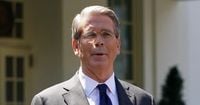In a press briefing on April 29, 2025, U.S. Treasury Secretary Scott Bessent expressed confidence in the resilience of individual investors amidst recent market turbulence, attributing their steadfastness to faith in President Donald Trump's tariff policy. Bessent noted that while institutional investors have reacted with panic, individual investors have largely held their positions, demonstrating trust in the administration's economic strategies.
Bessent highlighted data from Vanguard, one of the largest money management firms in America, which revealed that over the past 100 days, 97% of Americans have not executed a single trade. This statistic underscores a remarkable level of confidence among retail investors, who, during the recent market downturn, seized the opportunity to buy stocks at lower prices. "Individual investors have held tight, while institutional investors have panicked," Bessent remarked, emphasizing the contrasting behaviors of different market participants.
The recent market fluctuations were significantly influenced by Trump's tariff policies, which were described as the highest tariffs on imports in generations. These tariffs contributed to the worst stock market sell-off since the onset of the COVID-19 pandemic in 2020, causing the S&P 500 to briefly enter bear market territory before recovering some losses. Currently, the equity benchmark stands approximately 10% below its all-time high recorded in February.
As retail investors capitalized on the downturn, institutional investors, including hedge funds, began to retreat, increasing their bearish bets against the market. The growing concern among these institutional players centers around the potential economic fallout from steep tariffs, which may burden consumers and slow economic growth. According to Torsten Slok, chief economist at Apollo, there is a looming threat of a recession this summer, as trade-related shortages are expected to manifest in stores next month.
In addition to the impacts on the U.S. market, Bessent also addressed the ramifications for China, predicting that the country could lose 10 million jobs swiftly due to the tariffs. He cautioned that over time, Beijing would recognize the unsustainability of its own tariff policies. Bessent's remarks align with a broader narrative regarding the global implications of the ongoing trade tensions.
Ken Griffin, founder and CEO of Citadel, echoed similar sentiments, warning that Trump's aggressive trade strategies could damage the United States' global reputation and undermine the appeal of U.S. Treasury debt. Griffin's comments reflect a growing unease among financial leaders about the long-term effects of the current administration's trade policies.
As the market continues to react to these developments, the divide between individual and institutional investors becomes increasingly pronounced. Retail investors seem to be betting on a recovery, buoyed by their confidence in Trump's leadership, while institutional investors grapple with uncertainty and the potential for economic downturn.
In summary, Bessent's remarks shed light on the current state of the U.S. economy and the contrasting perspectives of different investor classes. As the administration navigates its tariff policies, the implications for both domestic and international markets remain a critical area of focus for economists and investors alike.




